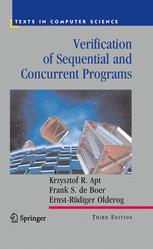

Most ebook files are in PDF format, so you can easily read them using various software such as Foxit Reader or directly on the Google Chrome browser.
Some ebook files are released by publishers in other formats such as .awz, .mobi, .epub, .fb2, etc. You may need to install specific software to read these formats on mobile/PC, such as Calibre.
Please read the tutorial at this link: https://ebookbell.com/faq
We offer FREE conversion to the popular formats you request; however, this may take some time. Therefore, right after payment, please email us, and we will try to provide the service as quickly as possible.
For some exceptional file formats or broken links (if any), please refrain from opening any disputes. Instead, email us first, and we will try to assist within a maximum of 6 hours.
EbookBell Team

4.1
30 reviewsComputer programs are an indispensable part of many of the systems we rely upon in our daily lives, and the proper functioning and safety of these systems is of paramount importance. The development of methods that ensure program correctness is therefore a key challenge for computer scientists.
This widely anticipated third edition of Verification of Sequential and Concurrent Programs provides a systematic exploration of one of the most common approaches to program verification, known as the "assertional" approach. Following the successful formula of previous editions, this approach is applied to deterministic and nondeterministic sequential programs of varying complexity, together with both parallel and distributed concurrent programs. The expanded content of this thorough new edition also includes coverage of the verification of object-oriented programs. For each class of programs, the authors introduce an operational semantics and proof systems for the verification of partial and total correctness, justified formally in corresponding soundness theorems. Case studies supplied throughout the book demonstrate the use of the proof systems to formally verify solutions to classical problems, such as sorting, manipulation of lists, producer/consumer and mutual exclusion.
Topics and Features:
This modern update of a classic, reader-friendly textbook is perfect for an introductory course on program verification for advanced undergraduate or graduate students, and may also be used as an introduction to operational semantics. Outlines for possible courses are suggested in the Preface to the book. This book is unique in addressing assertional verification of all essential classes of imperative programs: while programs, recursive programs, object-oriented programs, nondeterministic programs, parallel programs, and distributed programs.